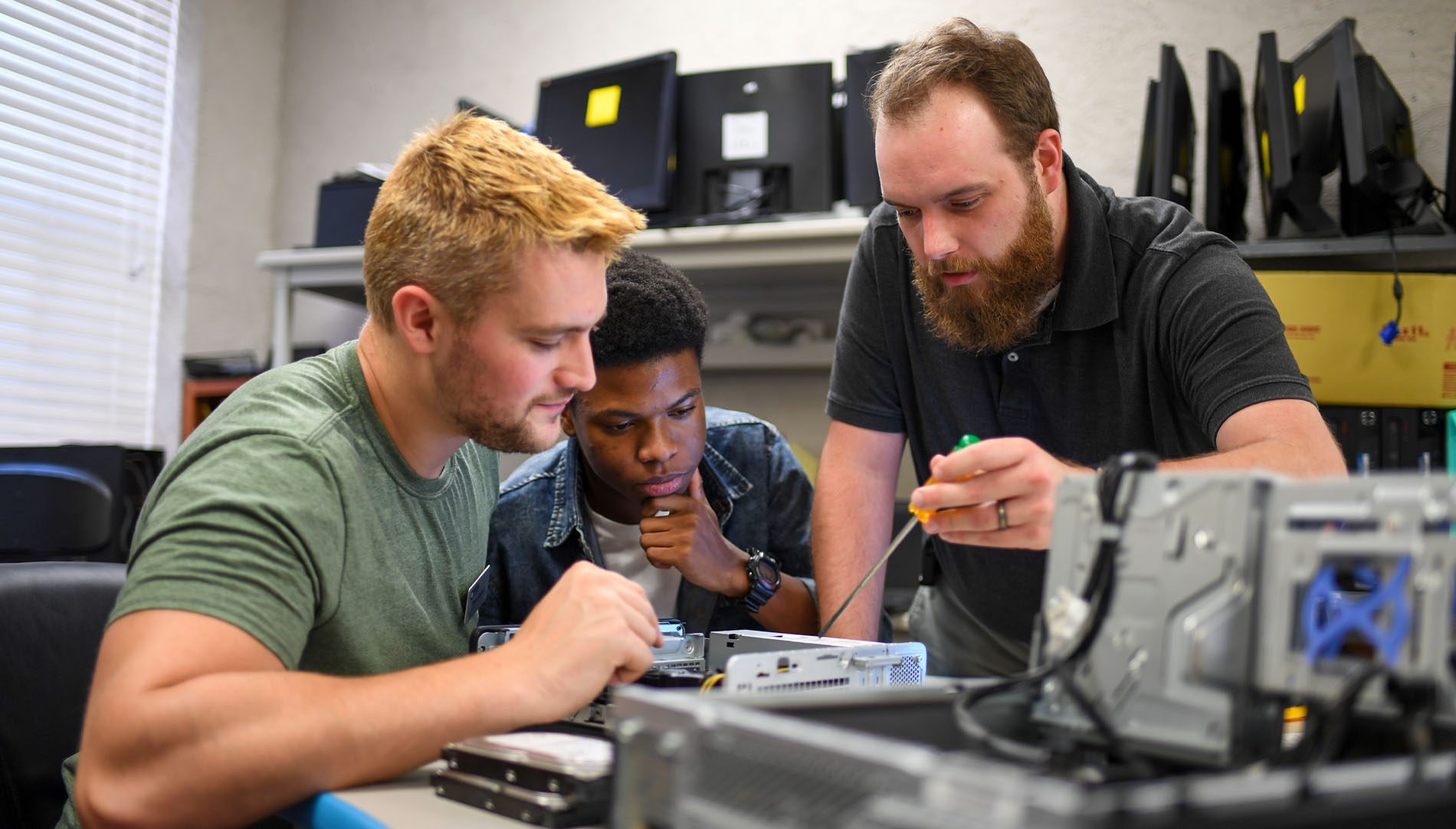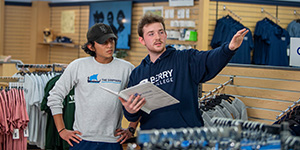With the rising cost of higher education today, many college students consider working while studying. However, finding the right job and knowing how many hours to take on are crucial to success. Research suggests that there are many pros to employment in college, but there can be drawbacks if students can’t figure out how to strike a balance between academics and job responsibilities. One of the essential ways to make a college job, internship or work-study position worth your while is to make sure you are engaged in meaningful work, preparing you for the future.
A Journey Toward Career Readiness
So, what does it look like to find a job that is preparing you for the future? The National Association of Colleges and Employers (NACE), a professional group connecting nearly 17,000 academic and business professionals across the country, drafted a list of eight competencies that can be used to assess whether a college graduate is career ready. Higher education professionals use these as a framework for helping students identify career-related goals for curricular and extracurricular activities, regardless of the student’s area of study. Likewise, employers in the U.S. use this list as the exemplary elements for sourcing talent or developing it through internships and other experiential education programs. The eight agreed-upon competencies include:
- Critical thinking
- Verbal/written communication
- Teamwork/collaboration
- Leadership
- Technological skills
- Professionalism/work ethics
- Equity/inclusion
- Self and career development
Although extracurricular activities and classes may be designed to help students grow in these areas, many college job opportunities don’t prioritize this type of development. Waiting tables at a local restaurant or bagging groceries may give a student experience with professionalism and communication but not the opportunity for maturing in career competencies. Likewise, federal work-study programs may help cover tuition and fees, but they often place less emphasis on career development.
However, some colleges value real-world work experiences and focus on incorporating them into campus life. One of the leading national examples is the LifeWorks program at Berry College. Designed with the NACE competencies in mind and student success at its core, LifeWorks blends work seamlessly with academic life to create the ideal environment for students to thrive in their studies and professional growth.
A Legacy of Meaningful Work
Since its inception, Berry College has valued the education of the whole student and has offered a unique work solution for students through the LifeWorks program, which provides eight paid semesters of personal and professional development. Founded on the idea that students gain valuable experience when they invest their effort and energy into shaping their community, student roles not only enhance their personal fulfillment but also enrich the college environment. Students are also mentored by trained supervisors invested in their growth. While involved in LifeWorks, students:
- Gain real-world personal and professional development experiences.
- Explore a wide range of career fields.
- Develop professional and transferable skills through on-the-job learning.
- Build a support network of mentors and supervisors — often lifelong relationships.
More Than a Paycheck, the LifeWorks Solution
For Berry students, getting involved in real-world work opportunities begins the summer before freshman year. Each student who wants a job fills out a survey about their interests, preferences and work experiences before college. The Center for Personal and Professional Development (CPPD) also encourages students to fill out a free assessment tool that makes career suggestions based on personalities, values, interests and workplace preferences. Based on this information, students are placed in jobs that align with their needs and priorities such as academic tracks, prior work experiences, interests or their individual required campus involvement.
Freshmen can work up to 10 hours per week to ensure they can gain valuable professional experience as they acclimate to college life and Berry College's academic rigor. Following the first year, upperclassmen can work up to 12 hours per week, with the exception of certain scholarship students who are cleared to work more. During breaks and in the summer, students can work up to 40 hours per week in the LifeWorks program.
Dean of Personal & Professional Development Marc Hunsaker says, “Berry’s LifeWorks program is unique because it provides real-world work experiences that develop professional skill sets valued by employers nationwide. Our enhanced job classification and promotion system ensures students don’t just earn a paycheck in college, but they also become well-rounded, career-ready individuals prepared to make a lasting impact on the places they live, work and serve.”
The Perfect Balance
Supervisors, alongside the Center for Personal and Professional Development at Berry, structure student responsibilities and development along a tiered system in 180 different departments and specialty areas using the NACE competencies.
Entry-Level Jobs: Task-oriented, highly routine and easy to learn, these jobs help students grow in professionalism, communication and teamwork. Supervisors oversee these roles closely.
Intermediate-Level Jobs: With increased responsibilities, these jobs involve supervising, managing small to mid-level projects and training others. Students gain more independence and develop more critical thinking and self-management skills in these roles.
Advanced-Level Jobs: Students take significant ownership of major projects and department management. They work independently about 50% of the time and demonstrate high levels of professionalism, communication and collaboration.
Pre-Professional Jobs: These roles involve departmental management or significant leadership positions with minimal supervision. Students at this level are highly skilled, receive advanced training and sometimes have specialized knowledge. They are capable of mentoring others, are adept at research and excel in all NACE competencies.
Still debating if working during college is the right move for you? Seek job opportunities that not only help cover tuition but also set you up for future success. And if you are looking for an experience that is more than just exceptional academics and includes eight semesters of paid professional development with the support from a network of mentors, LifeWorks at Berry College might be an excellent fit for you.






